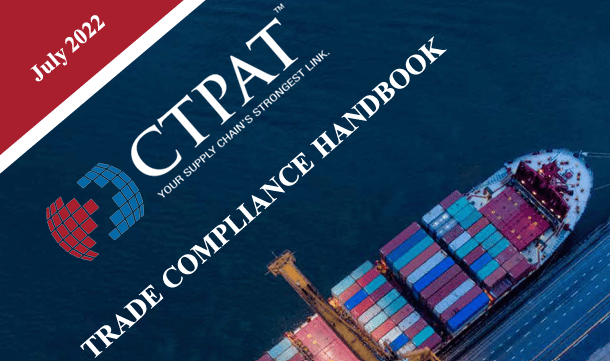The New Era of US Sanctions Policy: Implications of the National Security Package on Russia and Iran
In a significant development, President Biden recently signed a national security package (H.R. 815) into law, incorporating various provisions that have far-reaching implications for multinational companies and international affairs. This blog post aims to summarize the key highlights of the legislation, including measures such as doubling the statute of limitations for US sanctions violations, authorizing the seizure of Russian assets, imposing additional sanctions on Russia, Iran, and Hamas, and prohibiting the transfer of sensitive data to foreign adversaries. Let’s delve into the details.
Doubling the Statute of Limitations for US Sanctions Violations
One of the provisions outlined in the new national security package pertains to the extension of the statute of limitations for US sanctions violations. The legislation amends the International Emergency Economic Powers Act and the Trading With the Enemy Act, increasing the timeframe from 5 to 10 years. This change empowers the US Department of Justice and the Office of Foreign Assets Control to reach further back into historical transactions to identify and penalize violations of US sanctions.
Sanctions Targeting Russia
The law requires the President to submit a report to Congress within 90 days, identifying parties subject to EU and UK sanctions targeting Russia. Parties meeting certain criteria for US sanctions related to human rights violations, foreign interference, or trade and investment with Russia could face additional US sanctions. This provision aims to align US actions with those of the EU and UK, creating a unified front against Russia.
Authorizing Seizure of Russian Sovereign Assets to Rebuild Ukraine
A central component of the national security package is the authorization for the President to seize frozen Russian sovereign assets held in US financial institutions. The estimated value of these assets is between $3 billion and $4 billion, and their potential confiscation aims to support Ukraine’s reconstruction efforts. It’s important to note that this provision does not immediately trigger the seizure of assets; rather, it grants the President the authority to do so, subject to specified procedures and timelines.
Scope and Process of Seizing Russian Assets
The law defines Russian sovereign assets as funds and property belonging to entities such as the Central Bank of the Russian Federation, the Russian National Wealth Fund, or the Ministry of Finance of the Russian Federation, along with other assets owned by the Russian government. The President may include Belarusian assets within the scope if Belarus is determined to have engaged in an act of war against Ukraine related to Russia’s February 24, 2022 invasion.
To initiate the potential seizure of Russian assets, financial institutions holding these assets must provide notice to the US Treasury Department within 10 days of detection. The President must then issue instructions to financial institutions within 90 days following the enactment of the law. Seizure can occur 30 days after the President submits a certification to the appropriate congressional committee. It’s important to note that this provision prohibits judicial review of the seizure or transfer of frozen Russian assets.
Distributing Funds to Ukraine and Establishing Compensation Mechanism
The national security package grants the State Department authority to distribute the seized assets as funds to Ukraine through a newly established “Ukraine Support Fund.” These funds will aid in Ukraine’s reconstruction, recovery, economic stability, and humanitarian assistance. Additionally, the law requires the President to establish an international mechanism, including the creation of a “Ukraine Compensation Fund,” to compensate Ukraine for the harm caused by Russia’s actions.
Sanctions Targeting Iran
The newly enacted legislation also includes provisions targeting Iran. One key focus is imposing sanctions on foreign individuals involved in petroleum trade operations with Iran, including property blocking and visa ineligibility measures. The law also expands existing sanctions against foreign financial institutions involved in significant transactions with Iran’s financial sector, irrespective of the volume or frequency of transactions, thereby increasing pressure on entities supporting Iran’s oil industry.
Other Sanctions Measures
The law encompasses various other measures, including the expansion and reinforcement of existing sanctions against Iran’s ballistic missile program, the authorization to sanction individuals supporting terrorism or violating human rights, and the extension of US export controls targeting Iran. These measures aim to curtail Iran’s illicit activities and enhance US national security interests.
Implications and Future Considerations
The signing of this national security package marks a significant step in US foreign policy, particularly in relation to Russia and Iran. Multinational companies operating in these regions should closely monitor the evolving sanctions landscape to ensure compliance with trade rules and mitigate potential risks. Additionally, foreign entities engaged in transactions involving Russia or Iran should be aware of the increased scrutiny and potential consequences for non-compliance.
Conclusion
President Biden’s signing of the national security package introduces important changes in US sanctions policy, targeting Russia and Iran while empowering the US government to seize frozen Russian assets. The legislation’s provisions, including the extension of the statute of limitations and the authorization for asset seizure, create a dynamic legal framework that businesses and individuals must navigate. Staying informed about updates and changes in sanctions regulations will help ensure compliance and minimize potential liabilities.
Source article: https://sanctionsnews.bakermckenzie.com/us-president-signs-national-security-package-with-provisions-to-seize-russian-assets-and-target-russia-and-iran-with-additional-sanctions/











